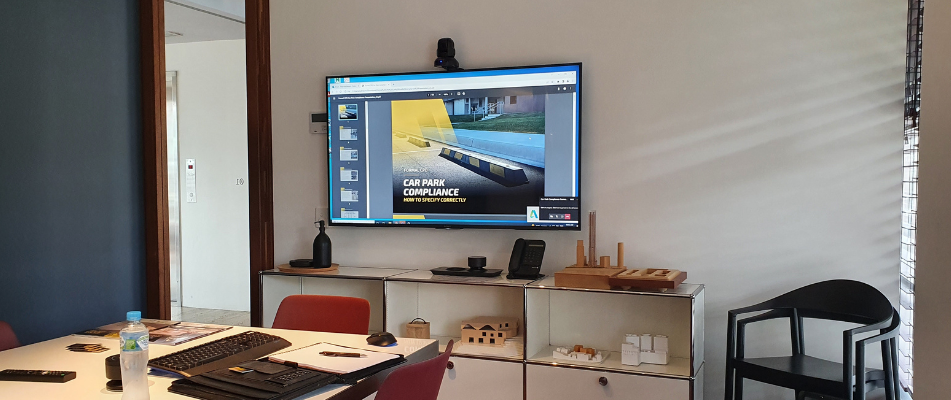What Are CPD Points and How Can I Earn Them?



As a trusted resource for professional development, we often receive questions about Continuing Professional Development (CPD) points. In this article, we're addressing two of the most frequently asked questions: "What are CPD points, and how can I earn them?"
So, what are CPD points?
CPD stands for Continuing Professional Development. It refers to the process of tracking and documenting the skills, knowledge, and experience that you gain both formally and informally as you work. It's beyond any initial training and happens throughout your career.
CPD points, also known as CPD hours, CPD units, or CPD credits, are a way of quantifying this professional development. Earning these points indicates that a professional has engaged in activities that improve their skills and knowledge, ensuring that they remain effective and up-to-date in their field.
Who needs CPD points?
All registered professionals are required by law to complete a certain number of CPD hours (minimum number of CPD points) per year to retain their registration or license. This means they continue to stay up to date and informed about advancements in their profession. These professionals include architects, engineers, lawyers, doctors, nurses, builders, real estate professionals, principals and teachers, plus many others.
Why are CPD points important?
CPD points are important for several reasons:
- They help maintain and enhance knowledge and skills to deliver a professional service to customers, clients, and the community.
- They ensure that qualifications do not become outdated, allowing individuals to upskill or re-skill.
- They can contribute to career progression and advancement.
- Certain professions (like engineers and architects) require a minimum number of CPD points to maintain professional status or membership in a professional body.
What is the difference between Formal and Informal CPD Activity Points?
Professionals should be guided in their selection of CPD activities by their own assessment of published information about the course structure, the reputation of the provider, the expertise of the presenter, the quality of the activity and the relevance of the subject matter to determine if a particular activity is appropriate to their learning needs, and whether it constitutes an Informal or Formal activity. In summary:
- Formal CPD Activities: These mostly involve a structured assessment task that genuinely tests participants’ understanding of content, otherwise involves significant interaction between the presenter and the participants.
- Informal CPD Activities: Informal CPD activities include self-directed study and professional activities that relate to practice as a professional. They are in addition to activities already undertaken in the normal course of practice or employment. They may also include activities such as tutoring or mentoring, raising awareness of the profession in schools, or marking work produced by profession students.
How can you earn CPD points?
Earning CPD points depends on your industry and the regulations of the relevant professional body. Generally, there are many ways to earn CPD points:
- Training courses and workshops: These are typically the most common ways to earn CPD points. By attending these courses, you can gain new skills or enhance existing ones.
- Conferences and seminars: Attending industry-specific conferences and seminars often count towards CPD points.
- E-Learning: Many professional bodies recognise online courses as valid for CPD points.
- Self-directed learning: Reading, researching, or other types of self-initiated learning can sometimes count towards CPD points.
- Mentoring: Either being a mentor, teacher or trainer can also contribute to your CPD points.
- Authorship: of published articles, books, papers and activities relating to development of course or lecture content.
Remember, the most important aspect of CPD is reflection and learning. It's about what you've learned, how you’ve applied that knowledge, and the improvement in your practice. Always check with your professional body about what activities count towards your CPD points and how to record them.
Do CPD records need to be kept on file and for how long?
Professionals such as architects must upload a detailed record of their CPD activity for the last 12-month period and should keep records of their activities for at least five years. Records must include the date, activity name/description, provider name, relevant Unit(s) of Competency covered by the activity, category of activity (ie. Formal or Informal), and number of hours claimed for the activity.
For provider-delivered CPD, the following evidence is required:
- A certificate of completion for every Formal CPD activity as proof of attendance. The certificate must include the participant’s name and registration number, provider name, date, activity name/description, relevant Unit(s) of Competency covered by the activity, category of activity (i.e.. Formal or Informal), and number of contact hours for the activity.
- Evidence of the completion of a structured assessment task (e.g. Personal notes taken during the activity or a photograph of work produced).
CPD is an investment that you make in yourself. It's a way of planning your development that links learning directly to practice. Remember, the ultimate goal of CPD is to ensure you maintain a high level of competence, enhancing your career prospects along the way.
By the way - did you know that Astra Street Furniture offers CPD online courses?
That’s right. We offer both on demand videos and online Zoom sessions with an instructor for a range of essential and relevant topics for architects.
You can find out more online here.

 Seating
Seating Benches
Benches  Curved Benches
Curved Benches Commercial Picnic Tables
Commercial Picnic Tables Concrete Plinth Mount Seating
Concrete Plinth Mount Seating Litter Bins
Litter Bins Bin Enclosures
Bin Enclosures  Shelters
Shelters Bike Parking
Bike Parking Architectural Bollards
Architectural Bollards Planter Boxes
Planter Boxes Skate Deterrents
Skate Deterrents  Drinking Fountains
Drinking Fountains Outdoor Classrooms
Outdoor Classrooms Aluminium Plank Furniture
Aluminium Plank Furniture Athens Suite
Athens Suite Barcelona Suite
Barcelona Suite Berlin Suite
Berlin Suite Copenhagen Suite
Copenhagen Suite Dublin Suite
Dublin Suite Florence Suite
Florence Suite Glasgow Suite
Glasgow Suite Liverpool Suite
Liverpool Suite London Suite
London Suite Madrid Suite
Madrid Suite Manchester Suite
Manchester Suite  Milan Suite
Milan Suite Orbit Suite
Orbit Suite Paris Suite
Paris Suite Prague Suite
Prague Suite  Portsmouth Suite
Portsmouth Suite Rome Suite
Rome Suite Venice Suite
Venice Suite  Vienna Suite
Vienna Suite Woodville Suite
Woodville Suite School Furniture
School Furniture Healthcare Furniture
Healthcare Furniture Local Government Furniture
Local Government Furniture Park & Street Furniture
Park & Street Furniture Shopping Centre Furniture
Shopping Centre Furniture Aged Care Furniture
Aged Care Furniture